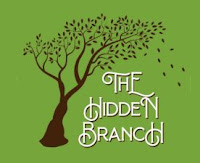Good morning all and Happy Holidays! This year has been busy. I would have thought with the continuing Covid pandemic and working from home that things would have calmed down some but that isn't the case. Of course, much of what I am doing is working on my genealogy projects and helping others work on their projects.
Earlier this month, on December 7, was the 80th anniversary of the bombing of Pearl Harbor and the entrance of the United States into World War II. With the entrance into WWII, the lives of many people were changed. Young men were recruited into the armed forces. Parents said good bye to their sons, some forever. Employers had to find new ways to replace their workforce which introduced many more women into the work force. Our local newspapers chronicled many of these events in their daily or weekly columns. However, 80 years later, many of those events are dim memories for only a few living people and the more recent generations are not aware of all the sacrifices that their predecessors had to endure. It is time for them to learn about their ancestors' lives during WWII so they can understand more about how those events shaped a generation. The WWII Hometown Newspaper Collections Project is a grassroot project to begin chronicling those events in a way that the current generations can discover.
The WWII Hometown Newspaper Collections Project is a volunteer project where individuals or groups can document the individual sacrifices by collecting newspaper articles from the time and attaching them to the family tree on FamilySearch or by creating and publishing biographies of the individuals in those newspaper stories. Volunteers can select their hometown newspapers and discover stories about the local residents from WWII. I will be working on stories from The Minster Post in Minster, Ohio. The articles can be enlistments, promotions, service records, deaths, or any number of other related topics. Some volunteers may want to write something about the individuals. Examples of such stories can be found at my blog with biographies for 2nd Lieutenant Edwin Allen Rodheffer, Ensign Harry Francis Raterman, and Staff Sargent Edward Frederick Gaier. Others may just want to link the stories to the FamilySearch family tree. Whichever way you want to be involved is up to you, but either way will encourage others to learn more about the family members who served during WWII.I hope that you will join me in this project and help to document how WWII was experienced on an individual level. Contact me if you would like to learn more about this project or join me at RootsTech Connect 2022 on March 3-5, 2022 where I will be talking about this project during a live session.






















